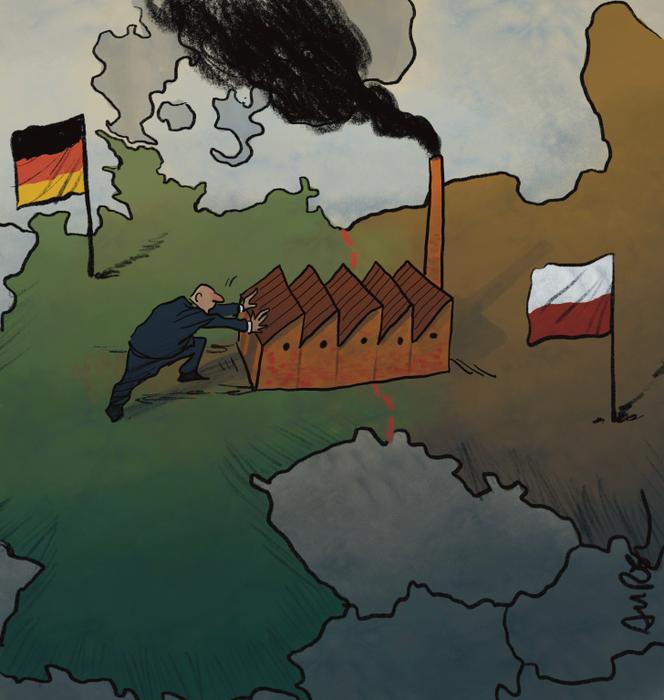


In the German public debate, the episode is regularly presented as one of the shining symbols of Germany's loss of competitiveness. In February, luxury household appliance manufacturer Miele, hit by falling orders and rising costs, announced its intention to relocate a large part of its production to Poland. The company, emblematic of "made in Germany" for household equipment, is turning its back on German production of its famous domestic washing machines. Two thousand seven hundred jobs will be affected, notably in Gütersloh, North Rhine-Westphalia, headquarters of the family-owned business founded 125 ago.
Miele has joined the list of German companies relocating production or investing abroad rather than in Germany, against a backdrop of widespread declining investment. Behind the recent high-profile announcements by big names in industry (Bosch, ZF, Continental), which are cutting thousands of jobs in Germany, many small businesses feel threatened. According to a survey by the IG Metall trade union, conducted among 2,500 employee advisers and published at the end of March, 50% of companies are investing too little in their sites across the Rhine.
"Instead of actively tackling today's challenges, companies are increasingly questioning locations and employment," the union said. A March study by the German Chamber of Industry and Commerce noted that 35% of companies investing abroad were doing so for cost reasons, rather than to conquer new markets. The two main sectors most concerned were energy-intensive industries and the automotive sector, as the IFO Institute pointed out in April.
"Alongside energy prices, there's the huge upheaval the automotive industry is facing, toward electric and digital. This means that many companies are trying to cut costs by restructuring their production," said Oliver Falck of the IFO. This lack of investment is having a dramatic impact on the country's modernization. According to figures from the KfW bank, corporate spending in Germany, which accounts for 55% of the country's investment efforts, has been stagnating for a decade at a level well below the 1990s.
They are clearly insufficient to renew the country's productive apparatus, against a backdrop of the digital and green transition. Foreign companies cannot reverse the trend: According to the EY barometer, published at the beginning of May, investment by foreign companies in Germany, which has fallen by 35% in seven years, is at its lowest level for 10 years.
You have 57.46% of this article left to read. The rest is for subscribers only.
